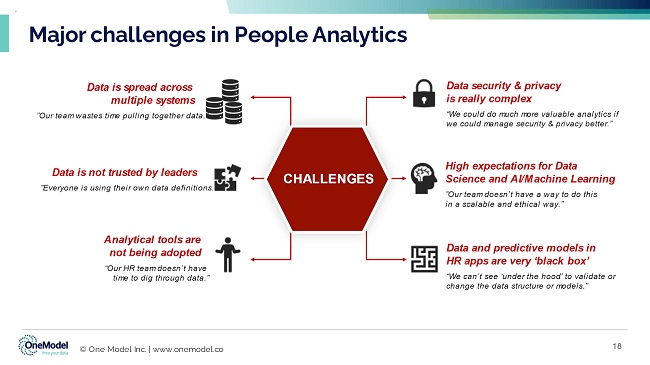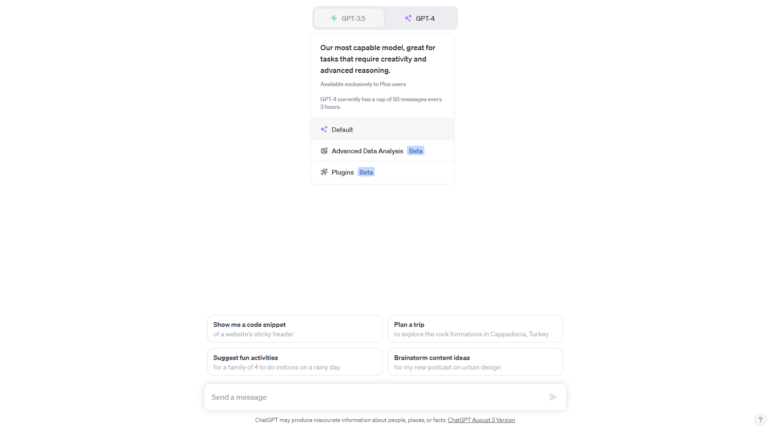
Is data analytics stressful? It’s a question that many people ask when considering a career in this field. Well, let me tell you, my friend, that the answer isn’t as simple as yes or no. It’s more like a “it depends” kind of situation. Allow me to break it down for you.
You see, data analytics can be both challenging and rewarding. On one hand, it involves diving into complex datasets, analyzing trends, and making sense of all that information. It requires a keen eye for detail and the ability to work with numbers and statistics. But on the other hand, it also offers exciting opportunities to uncover valuable insights, solve real-world problems, and make a significant impact.
Now, let’s talk about the stress factor. Like any job, data analytics can have its moments of pressure. Tight deadlines, high expectations, and the constant need to deliver accurate and actionable insights can create stress. However, with the right skills, tools, and mindset, you can effectively manage these challenges and turn them into opportunities for growth and success.
So, don’t let the fear of stress deter you from exploring the fascinating world of data analytics. With the right passion, dedication, and support, you can navigate this field and thrive in an ever-evolving industry. Are you ready to take on the exciting challenges of data analytics?
Is Data Analytics Stressful?
Wondering about the stress levels in data analytics? While data analytics can be challenging, it doesn’t have to be stressful. By managing your time effectively, practicing self-care, and seeking support from colleagues, you can navigate the demands of the field with greater ease.
Remember to set realistic expectations, take breaks when needed, and celebrate your accomplishments. With the right approach, data analytics can be an exciting and rewarding career path.
1. Workload and Deadlines
One of the primary sources of stress in data analytics is the heavy workload and tight deadlines that analysts often face. Analyzing large data sets, cleaning and preparing data, and generating meaningful insights can be time-consuming tasks. The pressure to deliver results within a limited timeframe can lead to heightened stress levels and feeling overwhelmed. Additionally, the complexity and ambiguity of data can exacerbate the stress as analysts strive to meet expectations while ensuring accuracy and quality.
To manage this stressor, effective time management and prioritization are essential. Breaking down tasks into smaller, manageable components, setting realistic deadlines, and utilizing project management tools can help alleviate stress. It is also crucial for organizations to provide adequate resources and support to ensure analysts have the necessary tools and assistance to meet deadlines without compromising their well-being.
Moreover, open communication and collaboration within the team can foster a supportive work environment where individuals can share the workload and offer assistance when needed. This can help distribute the pressure and reduce stress levels for data analysts.
2. Data Complexity and Uncertainty
Data analytics often involves working with vast amounts of complex and unstructured data, which can be challenging and stressful. The unpredictability of data quality, missing values, outliers, and incomplete datasets can make the analysis process more demanding and time-consuming. The constant need to adapt and find solutions to data-related issues can take a toll on analysts’ mental well-being.
To minimize stress caused by data complexity and uncertainty, organizations should invest in providing suitable tools and technologies that facilitate data cleaning and integration processes. Automated data cleansing and validation tools can streamline the data preparation stage, reducing the pressure on analysts. Additionally, offering training and professional development opportunities to improve technical skills and stay updated with the latest data analytics techniques can empower analysts to tackle complex data challenges more effectively.
Analysts must maintain a growth mindset and embrace the iterative nature of data analytics. Recognizing that data analysis is an ongoing learning process and seeking input from colleagues or subject matter experts can help in navigating through data complexities with less stress and frustration.
3. High Expectations and Performance Pressure
Data analytics plays a critical role in informing strategic decisions and driving organizational growth. As a result, data analysts often face high expectations and performance pressure to deliver accurate and impactful insights. The fear of making errors or misinterpreting data can cause significant stress and anxiety.
To address this stressor, organizations need to foster a culture that values learning from mistakes and encourages open communication. Creating a psychologically safe environment where analysts feel comfortable admitting errors and seeking help can mitigate stress levels. Providing regular feedback, recognition, and opportunities for professional growth can also help reduce performance pressure and enhance job satisfaction.
Individually, adopting stress management techniques such as mindfulness, regular exercise, and taking breaks when needed can support mental well-being and resilience. Engaging in activities outside of work and maintaining a healthy work-life balance is essential for preventing burnout and managing stress in the long run.
Benefits of a Career in Data Analytics
With the potential stressors in the field, a career in data analytics also offers numerous benefits. Let’s explore some of these advantages:
How to Manage and Mitigate Stress in Data Analytics
While data analytics can be a demanding and potentially stressful field, several strategies can help individuals manage and mitigate stress. Here are some tips:
As the field of data analytics continues to evolve and grow, so does the understanding of stress management in this domain. Organizations and professionals alike are recognizing the importance of prioritizing mental well-being and creating supportive environments that foster resilience. With ongoing advancements in technology and data analytics tools, the future of stress management in the field looks promising.
Frequently Asked Questions
Are you curious about the level of stress involved in data analytics? Check out these commonly asked questions to learn more about the stress levels associated with this field.
1. What are some common stressors in the field of data analytics?
In the field of data analytics, some common stressors include tight deadlines, handling large volumes of data, and managing complex algorithms. The pressure to deliver accurate and actionable insights within strict timeframes can create a stressful work environment. Additionally, troubleshooting technical issues and communicating findings to stakeholders can also contribute to the stress levels.
However, it’s essential to note that stress levels can vary depending on the individual, the organization, and the specific tasks involved in data analytics. Some people thrive under pressure and find the challenges of the field exhilarating rather than stressful.
2. How can data analysts manage stress effectively?
To manage stress effectively in data analytics, it’s crucial to prioritize self-care and adopt strategies that promote well-being. Developing time management skills, setting realistic expectations, and maintaining a healthy work-life balance are essential. Regular breaks, exercise, and practicing mindfulness techniques can also help in reducing stress levels.
Additionally, seeking support from colleagues, supervisors, or mentors can provide valuable guidance and assistance when dealing with stressful situations. It’s important to remember that everyone experiences stress differently, so finding personalized coping mechanisms is key to managing stress effectively in this field.
3. Does working in data analytics always lead to burnout?
No, working in data analytics does not always lead to burnout. Burnout can occur in any profession if there is an imbalance between work demands and available resources for coping with them. It is crucial to establish healthy boundaries and cultivate a supportive work environment to prevent burnout.
Data analysts can take proactive steps to prevent burnout by setting realistic goals, seeking work-life integration, and practicing self-care. Organizations can also play a significant role in preventing burnout by fostering a culture that values work-life balance and providing resources for mental health support.
4. Are there any strategies to reduce stress in data analytics?
Yes, there are several strategies to reduce stress in data analytics. One effective approach is to break down complex tasks into smaller, manageable steps. This helps prevent overwhelm and allows for clearer focus and planning. Setting realistic deadlines and delegating tasks when possible can also alleviate stress by distributing workload.
Effective communication with team members and stakeholders can also reduce stress by ensuring everyone is on the same page and expectations are clear. Finally, adopting tools and technologies that streamline data analysis processes can help minimize stress levels by increasing efficiency and accuracy.
5. Is stress in data analytics always negative?
Not necessarily. While high levels of stress can have negative impacts on individuals, moderate levels of stress can actually enhance performance and productivity in data analytics. Some people thrive under pressure and find that a certain degree of stress motivates them to excel in their work.
Stress can catalyze problem-solving, innovative thinking, and creative decision-making. It pushes individuals to think critically and adapt to fast-paced environments, which are often prevalent in data analytics. However, it is important to maintain a healthy balance and manage stress effectively to prevent it from becoming overwhelming or detrimental to well-being.
Data analytics can be stressful because it involves large amounts of data. Sometimes, this can be overwhelming. However, proper time management and organizational skills can help reduce stress. It’s also important to take breaks and practice self-care to avoid burnout. Remember, stress is a normal part of life, but with the right mindset and strategies, it can be managed effectively.
In conclusion, while working with data analytics can be stressful, it is possible to overcome this by developing skills to manage stress and finding a balance in your work-life routine.






